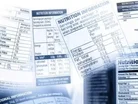Canadian Government Proposes Changes to Nutrition Labeling Requirements

Food manufacturers and packagers in Canada could be facing some major changes in the near future. The Government of Canada is taking a serious and involved look into the current state and effectiveness of nutrition labels and the nutrition facts table (NFT), and proposing a series of changes to help consumers make more informed decisions about the food they eat.
According to reports, Health Canada is now in its second round of consultations on proposed changes to nutrition labeling, after gathering feedback and suggestions from Canadian consumers during the period of January to April 2014.
Proposals surrounding sugar content seem to dominate the new proposals to a significant degree. Sugar content is a huge concern in Canada as well as around the world, and there are three new labeling proposals on the board attempting to address this in different ways by providing a much more prominent breakdown of how sugars are involved in food products. Health Canada may end up with one or a combination of these proposals:
- Grouping Sugars Together – One approach proposes highlighting the total amount of all sugar-based ingredients, from sucrose and high fructose corn syrup to honey and molasses, by grouping them in parentheses under the title of “sugars.” This would push the collective of sugars higher on a list of ingredients, giving consumers a clearer and truer picture of how much sugar they are consuming in a food or beverage product.
- Highlighting Added Sugars – This approach addresses the NFT and mimics a similar proposal under consideration with the United States FDA, suggesting the addition of a second line below “total sugar” percentages that isolates “added sugars,” defined as any sugar added during the processing phase of production. The idea behind this approach is to help consumers identify products that are made with added sugars.
- Percentage Daily Value – The third approach suggests setting a percentage daily value of 100 grams for “total sugars” to the NFT, based on the idea that this could help consumers make comparisons and more informed decisions on how much sugar they are consuming.
With that said, the new proposals do also touch on several other issues of concern to consumers and Canada’s Ministry of Health. Some other proposals include:
- New Serving Size Guidelines – One proposal suggests increasing the consistency of serving sizes between similar products, and bringing them more in line with healthful consumption levels. This could be difficult to achieve unless competing food manufacturing and processing companies are able to work together closely with Health Canada.
- Changes to the Placement of NFT Information – Some suggestions for the nutrition facts table include making total calories more prominent, shifting the order of information (placing less desirable nutrients like fat and sodium toward the top and desirable nutrients like fiber toward the bottom for easier reading), and adding recommended percentage daily values for items like fiber.
It isn’t likely that all of these suggestions will be implemented simultaneously, or at all – new labels are still very much in the planning and consultation phase, and Health Canada is looking for industry input on how to improve labels in a way that is tenable for manufacturers. Industry stakeholders have until September 12, 2014, to submit suggestions and comments regarding Health Canada’s current proposal documents. The Canadian government will take these notes into consideration while making further decisions on the shaping of the nutrition labeling system.
[SOURCE: Mondaq]



